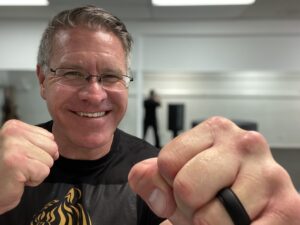In recent times, the issue of police shortages has become a cause for concern in many communities across the world. Factors such as budget constraints, retirements, and shifting public perceptions of law enforcement have contributed to this growing problem. In the face of these challenges, individuals are realizing the importance of being prepared to take on a more active role in their own safety and that of their communities. This article explores the concept of becoming your own first responder, focusing on preparedness, situational awareness, basic first aid, emergency medical skills, and practical self-defense techniques.
The Police Shortage Predicament
The shortage of police officers has led to longer response times and reduced law enforcement presence in certain areas. This situation has prompted people to rethink their reliance solely on traditional emergency response systems and embrace the idea that they must be prepared to act in emergencies until professional help arrives. Empowering individuals with knowledge and skills can significantly impact the outcome of critical situations.
Preparedness: Your First Line of Defense
Preparedness is about equipping yourself with the tools and knowledge necessary to respond effectively in emergencies. This involves creating a comprehensive emergency plan for your family, including communication strategies and meeting points. Stocking up on essential supplies like food, water, medications, and other necessities is also crucial. Regularly reviewing and updating your plan ensures that everyone is on the same page and ready to act when needed.
Situational Awareness: Stay One Step Ahead
Situational awareness involves being attuned to your surroundings and potential threats. By staying observant and recognizing unusual behaviors, you can identify potentially dangerous situations before they escalate. Simple practices like avoiding distractions and trusting your gut feelings can play a significant role in keeping you safe.
Basic First Aid and Emergency Medical Skills
During emergencies, injuries can occur that require immediate attention. Basic first aid knowledge, such as applying a tourniquet, performing CPR (Cardiopulmonary Resuscitation), and managing bleeding, can mean the difference between life and death. There are numerous resources available, including online tutorials and local workshops, that teach these skills. Learning them empowers you to provide initial care to yourself and others until professional medical assistance arrives.
Empowering with Emergency Medicine Skills
Understanding emergency medical techniques goes beyond simple first aid. Learning how to treat wounds, administer medication, and handle medical emergencies empowers you to address critical situations comprehensively. Online resources, community classes, and even specialized courses can provide you with the necessary knowledge and confidence to act decisively during medical emergencies.
Practical Self-Defense Techniques
Being able to defend yourself and your loved ones in dangerous situations is a valuable skill. Many self-defense experts, like Matt Pasquinilli, offer free online classes that teach practical techniques for personal safety. These classes cover a range of topics, from basic techniques to more advanced strategies for handling potential threats. By acquiring self-defense skills, you can enhance your confidence and ability to respond effectively to dangerous situations.
The Power of Community Preparedness
Communities that come together to enhance their collective preparedness can create safer environments for everyone. Neighborhood watch programs, disaster preparedness groups, and community training sessions all contribute to building a sense of shared responsibility for safety. By working together, individuals can pool their knowledge and resources, creating a stronger and more resilient community.
The reality of police shortages has forced us to reconsider our approach to personal safety and emergency response. Embracing the role of your own first responder involves a commitment to preparedness, situational awareness, basic first aid, emergency medical skills, and practical self-defense techniques. By equipping ourselves with these skills, we not only enhance our own safety but also contribute to the overall well-being of our communities. In a world where emergencies can happen at any time, being empowered to take action is an essential step towards a safer and more secure future.
